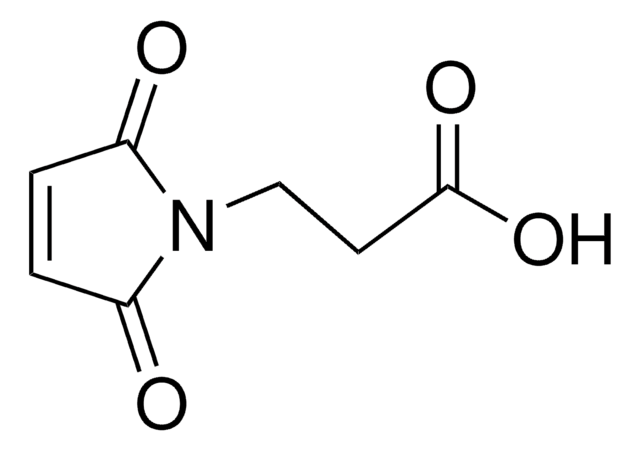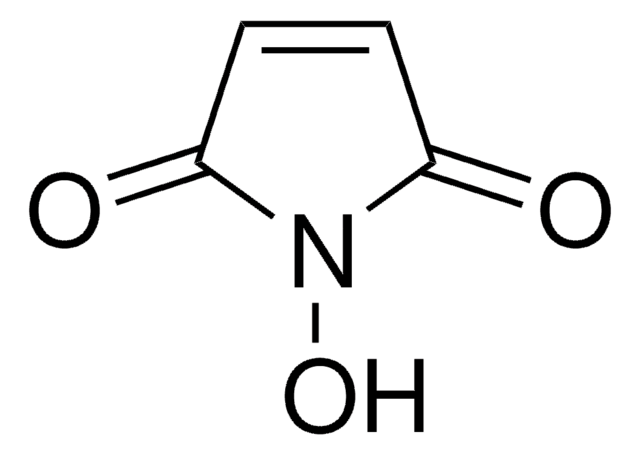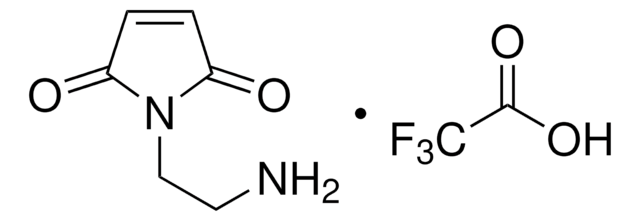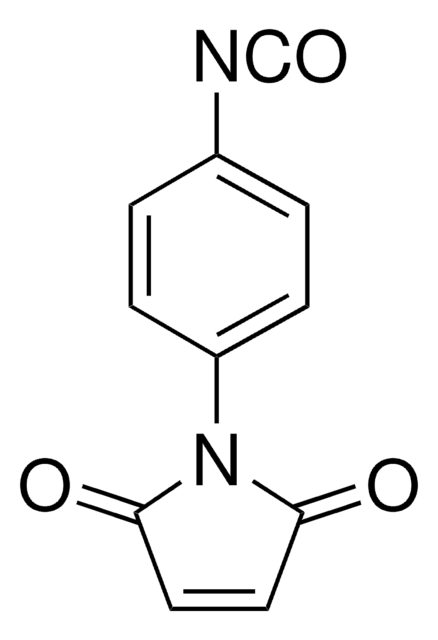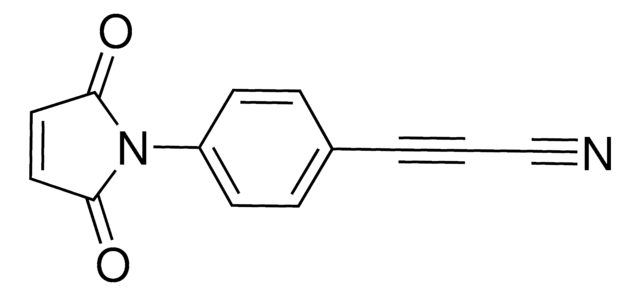809322
1-(2-Aminoethyl)maleimide hydrochloride
Synonym(s):
1-(2-Aminoethyl)pyrrole-2,5-dione hydrochloride
Sign Into View Organizational & Contract Pricing
All Photos(1)
About This Item
Empirical Formula (Hill Notation):
C6H9N2O2Cl
Molecular Weight:
176.60
MDL number:
UNSPSC Code:
12352111
PubChem Substance ID:
NACRES:
NA.22
Recommended Products
assay
95%
Quality Level
form
powder
mp
166 °C
functional group
amine
imide
maleimide
SMILES string
Cl.N1(C(=O)C=CC1=O)CCN
InChI
1S/C6H8N2O2.ClH/c7-3-4-8-5(9)1-2-6(8)10;/h1-2H,3-4,7H2;1H
InChI key
NJQOCRDPGFWEKA-UHFFFAOYSA-N
General description
1-(2-Aminoethyl)maleimide hydrochloride (N-(2-Aminoethyl)maleimide hydrochloride salt) can be prepared from tert-butyl 2-(2,5-dioxo-2,5-dihydro-1H-pyrrol-1-yl)ethylcarbamate.
Application
1-(2-Aminoethyl)maleimide hydrochloride (1-(2-Aminoethyl)-1H-pyrrole-2,5-dione HCl salt) may be used in the preparation of N-propionyl cysteaminylphenol-maleimide-dextran (NPCMD) and 4-nitrophenyl 2-(2,5-dioxo-2,5-dihydro-1H-pyrrol-1-yl)ethylcarbamate.
signalword
Warning
hcodes
Hazard Classifications
Eye Irrit. 2 - Skin Irrit. 2
Storage Class
11 - Combustible Solids
wgk_germany
WGK 3
flash_point_f
Not applicable
flash_point_c
Not applicable
Choose from one of the most recent versions:
Already Own This Product?
Find documentation for the products that you have recently purchased in the Document Library.
Customers Also Viewed
Yu Mizote et al.
Journal of dermatological science, 73(3), 209-215 (2013-12-10)
N-propionyl cysteaminylphenol-maleimide-dextran (NPCMD) is a toxic tyrosinase substrate developed to treat melanoma. We investigated the effect of NPCMD on innate immune responses in monocytes. CD14⁺ monocytes and a monocytic cell line, THP-1, were stimulated with NPCMD in vitro. Cytokines in
Pieter van der Veken et al.
Chembiochem : a European journal of chemical biology, 6(12), 2271-2280 (2005-10-29)
Gaining insight into phosphoproteomes is of the utmost importance for understanding regulation processes such as signal transduction and cellular differentiation. While the identification of phosphotyrosine-containing amino acid sequences in peptides and proteins is now becoming possible, mainly because of the
Our team of scientists has experience in all areas of research including Life Science, Material Science, Chemical Synthesis, Chromatography, Analytical and many others.
Contact Technical Service



